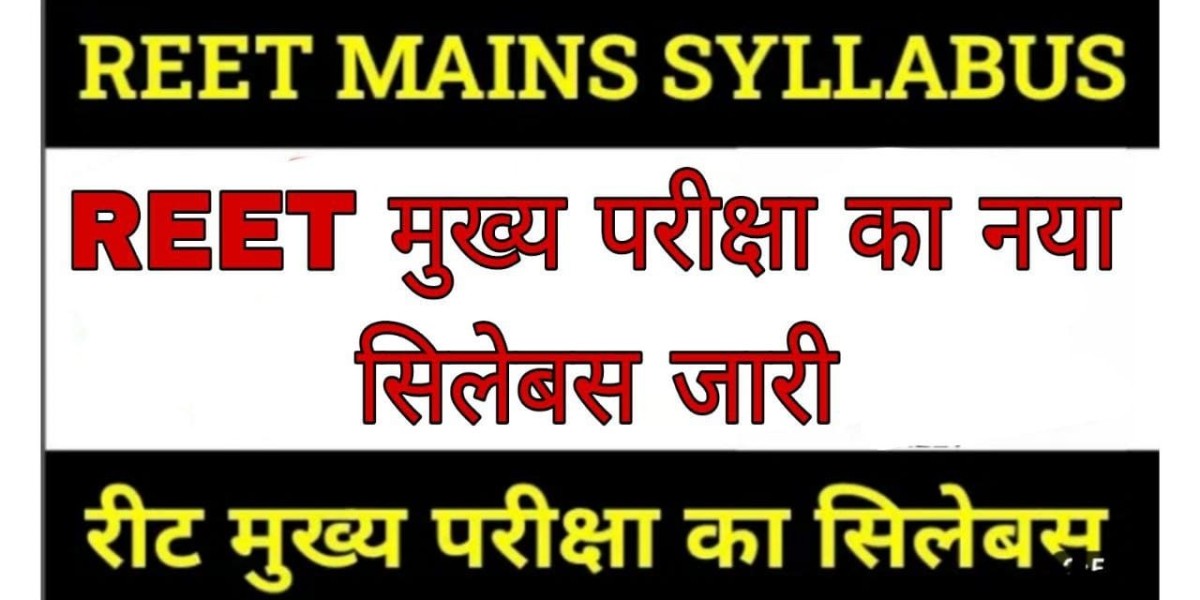REET Syllabus: A Comprehensive Overview
The Rajasthan Eligibility Examination for Teachers (REET) is a crucial examination conducted by the Rajasthan Board of Secondary Education (RBSE) to assess the eligibility of candidates for teaching positions in the state's primary and upper primary schools. Aspirants aiming to REET Syllabus 2023 become primary and upper primary teachers must be well-versed with the REET syllabus, as it serves as a roadmap for their preparation. This article provides a comprehensive overview of the REET syllabus, encompassing both levels of the examination.
Level I: Primary Teachers (Class 1 to 5)
The Level I of REET focuses on candidates aspiring to become primary teachers for classes 1 to 5. The syllabus for this level includes the following key subjects:
1. Child Development and Pedagogy: This section evaluates the candidates' understanding of child psychology, educational theories, and teaching methodologies suitable for young learners. It assesses their ability to address the cognitive, emotional, and social development of children.
2. Language (Hindi/English/Sanskrit/Gujarati/Punjabi/Sindhi/Urdu): Candidates are required to choose one language from the given options and demonstrate proficiency in that language's grammar, comprehension, and usage. Emphasis is placed on the ability to communicate effectively and promote language learning in young children.
3. Mathematics: This section tests candidates' mathematical concepts and their ability to teach basic arithmetic, geometry, measurement, and other mathematical principles to primary-level students.
4. Environmental Studies: The Environmental Studies section evaluates candidates' knowledge of the environment, nature, and general science topics. It includes questions related to ecosystems, pollution, health, and basic scientific principles suitable for primary school children.
Level II: Upper Primary Teachers (Class 6 to 8)
The Level II of REET focuses on candidates aspiring to become upper primary teachers for classes 6 to 8. The syllabus for this level includes the following key subjects:
1. Child Development and Pedagogy: Similar to Level I, this section assesses the candidates' understanding of child development and educational psychology. However, the focus shifts to the cognitive, emotional, and social development of older children.
2. Language (Hindi/English/Sanskrit/Gujarati/Punjabi/Sindhi/Urdu): Candidates need to choose one language from the options available and demonstrate a higher level of language proficiency, including grammar, comprehension, and communication skills.
3. Mathematics and Science (for Mathematics and Science teachers) OR Social Studies/Social Science (for Social Studies/Social Science teachers): Candidates opting for Mathematics and Science need to demonstrate a deep understanding of advanced mathematical concepts and scientific principles. On the other hand, candidates choosing Social Studies/Social Science must showcase their knowledge of history, geography, civics, and economics.
4. Environmental Studies: For candidates opting for this subject, the syllabus remains the same as that of Level I, covering topics related to the environment, general science, and ecosystems.
Preparing for the REET Examination
Aspirants preparing for the REET examination must adopt a strategic approach to cover the vast syllabus effectively. Here are some useful tips for a comprehensive preparation:
1. Know the Syllabus Thoroughly: Understanding the REET syllabus is the first step towards a successful preparation. Candidates should carefully read and analyze the topics included in each subject and level to plan their study schedule.
2. Create a Study Plan: A well-structured study plan is essential to cover all subjects systematically. Allocate sufficient time to each subject based on its weightage and your proficiency level.
3. Refer to Quality Study Material: Gather relevant and reliable study material, including textbooks, reference books, and online resources, to enhance your understanding of the topics.
4. Practice Previous Years' Question Papers: Solving previous years' question papers can help candidates familiarize themselves with the exam pattern and the types of questions asked.
5. Take Mock Tests: Mock tests are an excellent way to assess your preparation and identify areas that need improvement. Additionally, they help in improving time management skills.
In conclusion, the REET syllabus serves as a comprehensive guide for candidates preparing for the examination. By following a well-structured study plan and using the right resources, aspirants can enhance their chances of success and embark on a rewarding teaching career in Rajasthan.







